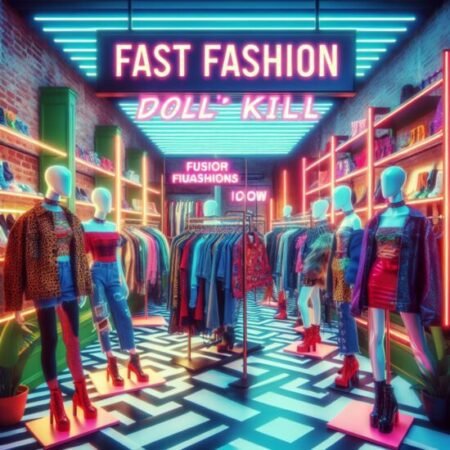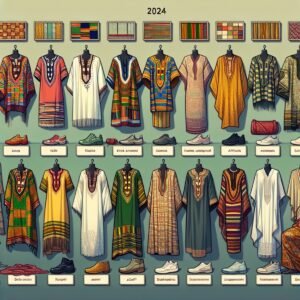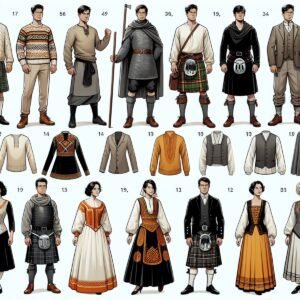
Introduction to Is Dolls Kill Fast Fashion
Dolls Kill, a US boutique established in 2011, has become known for its bold and festive fashion offerings. However, the brand has faced criticism and controversy over its ethical and sustainability practices. This article examines the ongoing debate about Dolls Kill, aiming to determine if it can be considered fast fashion.
The fashion industry plays a significant role in shaping ethical and sustainable practices today. It’s important to understand the impact of our fashion choices beyond personal style – it also involves taking responsibility for the environment and society. With Dolls Kill being a focal point of this discussion, it’s crucial to assess how it measures up in terms of ethical fashion.
In the following sections, we will:
- Explore what fast fashion means
- Analyze the controversies surrounding Dolls Kill
- Evaluate their efforts towards sustainability
- Compare their practices with those of ethical brands
- Conclude with our thoughts on whether Dolls Kill falls into the category of fast fashion
Understanding Fast Fashion and Its Characteristics

Fast fashion has become a dominant force in the fashion industry, revolutionizing the way we consume clothing. Dolls Kill, like many other brands, operates within this framework of fast fashion. To fully understand the implications of Dolls Kill’s practices, it is important to grasp the concept of fast fashion and its key characteristics.
What is Fast Fashion?
Fast fashion refers to the mass production of inexpensive clothing that is designed to quickly capture current fashion trends and make them accessible to consumers at affordable prices. It is characterized by rapid turnover, allowing brands to continuously introduce new styles and collections into their stores.
How Fast Fashion Works
The operational model of fast fashion involves several elements:
- Quick production: Fast fashion brands prioritize speed in their production process. They aim to bring new designs from concept to store shelves within weeks or even days.
- Low cost: Fast fashion relies on cheap labor and low-cost materials to keep production costs down. This enables brands to offer products at prices that are attractive to consumers.
- High volume: Fast fashion companies produce large quantities of each garment to meet the demand for trendy items.
- Short life cycle: The life cycle of a fast fashion garment is short-lived. Trends change rapidly, and as a result, clothes become outdated and are discarded more quickly than ever before.
Key Characteristics of Fast Fashion

To illustrate the key characteristics of fast fashion, let’s take a look at two well-known brands in the industry: Zara and H&M.
1. Frequent Product Turnover
Both Zara and H&M release new collections frequently throughout the year, sometimes as often as every two weeks. This constant influx of new designs encourages consumers to keep coming back for the latest trends.
2. Affordability
Zara and H&M offer clothing at relatively low prices compared to high-end designer brands. This affordability makes fashion accessible to a wider range of consumers.
3. Mass Production
These brands produce garments in large quantities to meet the demand for trendy clothing. By producing in bulk, they can keep costs low and offer a variety of styles.
4. Imitation of High-End Designs
Fast fashion brands often draw inspiration from high-end designers and replicate their designs at a fraction of the cost. This allows consumers to access the latest trends without breaking the bank.
These characteristics highlight how fast fashion operates and why it has become so popular among consumers. However, they also raise concerns about sustainability, ethics, and the impact on workers and the environment.
Understanding fast fashion is crucial in evaluating Dolls Kill’s place within this industry. In the next section, we will delve into the controversies surrounding Dolls Kill and examine the allegations against the brand in more detail.
Examining the Allegations: Dolls Kill and Controversies

Dolls Kill, a US boutique known for its bold and festive vibe, has been no stranger to controversy. Let’s take a closer look at some of the controversies that have surrounded the brand.
Overview of the Different Controversies
Dolls Kill has faced several controversies over the years, with allegations ranging from copyright infringement to cultural appropriation. These controversies have sparked debates within the fashion community and raised questions about the brand’s ethics and practices.
Copyright Infringement Lawsuit and Design Theft Accusations
One of the most notable controversies surrounding Dolls Kill is the copyright infringement lawsuit filed against them by a smaller designer. The lawsuit alleges that Dolls Kill copied a unique design from an independent artist without permission or compensation. This accusation has raised concerns about the brand’s respect for intellectual property rights.
- Supporters argue that fashion often takes inspiration from existing designs, making it difficult to distinguish between influence and theft.
- Critics believe there is a clear distinction between inspiration and outright stealing, emphasizing the importance of giving credit and payment to original creators.
Instances of Cultural Appropriation
Another area where Dolls Kill has faced criticism is cultural appropriation. Cultural appropriation refers to adopting elements of another culture without understanding or respecting their significance, often leading to misrepresentation or disrespect.
Dolls Kill has been called out on multiple occasions for appropriating cultures through its products or marketing campaigns. For example, they have faced backlash for selling items like Native American headdresses or appropriating religious symbols without proper understanding or sensitivity.
Critics argue that cultural appropriation is offensive and perpetuates harmful stereotypes. They believe that brands like Dolls Kill should be more responsible and accountable for the cultural impact of their products.
Analysis of the Controversies
The controversies surrounding Dolls Kill highlight the need for ethical considerations in the fashion industry. While the brand has supporters who defend their practices, it is essential to critically evaluate both sides of the argument.
- Supporters argue that fashion is a form of self-expression and that artists often draw inspiration from various sources. They contend that accusations of copyright infringement or cultural appropriation may be subjective and overblown.
- Critics argue that the fashion industry should prioritize originality, respect, and cultural sensitivity. They believe that brands like Dolls Kill have a responsibility to conduct thorough research and collaborate with communities when incorporating elements from different cultures.
Ultimately, these controversies raise important questions about the ethics of fashion brands and remind us of our responsibility as consumers to support brands that align with our values.
The Sustainability Factor: Assessing Dolls Kill’s Practices

Dolls Kill has faced criticism for its approach to sustainability. In this section, we will examine their actions based on available information and discuss the issue of greenwashing in relation to the brand.
Evaluating Dolls Kill’s Efforts towards Sustainability
When it comes to sustainability, one of the main things to look at is how a brand sources its materials and manufactures its products. However, Dolls Kill does not provide much detail about these practices, which raises concerns about their commitment to sustainability.
- Limited transparency on materials sourcing and manufacturing processes
- Some claims of sustainable initiatives, but lack of evidence
Dolls Kill heavily relies on synthetic fabrics like polyester blends and cotton (both organic and conventional) that are not sustainable or earth-friendly. Polyester blends used by Dolls Kill often contain toxins such as lead, cadmium, phthalates, and formaldehyde. These harmful chemicals not only pose risks to human health but also contribute to environmental pollution during production and disposal.
Additionally, Dolls Kill’s business model promotes overconsumption through its constantly changing styles and increased personalization. The brand frequently offers sales with discounts of up to 70% off on women’s clothing and accessories, which encourages impulse buying and adds to the issue of fast fashion.
Why Transparency Matters in the Fashion Industry
Transparency is crucial for consumers to make informed decisions. It allows us to understand how a brand’s actions impact people, the planet, and animals. Unfortunately, Dolls Kill falls short when it comes to transparency. There is limited information available about their supply chain, labor practices, and environmental impact.
- Lack of transparency on supply chain, labor practices, and environmental impact
- Difficulty for consumers to make responsible choices without comprehensive information
Without comprehensive information about how their products are made, Dolls Kill leaves consumers unaware of the true cost behind their purchases. This lack of transparency makes it challenging for consumers to make sustainable fashion choices and hold brands accountable for their practices.
Greenwashing and Dolls Kill
Greenwashing refers to the act of making false or unsupported claims about a brand’s sustainability efforts. It is important to examine whether Dolls Kill may be engaging in greenwashing.
- Mention of sustainability on website, but lack of transparency
- Claims of commitment to ethical practices without concrete evidence
- Potential risk of misleading consumers with unsubstantiated sustainability claims
While Dolls Kill does mention sustainability on their website and claims to be committed to ethical practices, the lack of transparency raises questions about the authenticity of these claims. Without concrete evidence or third-party certifications to support their sustainability initiatives, there is a risk of greenwashing.
The Importance of Authenticity and Transparency
It is crucial for brands to back up their claims with tangible actions and provide transparent information about their sustainability practices. Without this transparency, it becomes difficult for consumers to differentiate between genuine sustainable brands and those that engage in greenwashing.
In conclusion, Dolls Kill’s sustainability efforts are questionable due to a lack of transparency and limited evidence supporting their claims. The brand’s reliance on synthetic fabrics and promotion of overconsumption further contribute to its negative environmental impact. Additionally, the concept of greenwashing raises concerns about the authenticity of Dolls Kill’s sustainability claims. As
Is Dolls Kill a Responsible Fashion Choice? Comparing with Ethical Brands

Introduction to Ethical Fashion Brands
When considering whether Dolls Kill is a responsible fashion choice, it’s crucial to examine ethical fashion brands that prioritize sustainability and ethical practices. These brands strive to minimize their negative impact on the environment while ensuring fair treatment of workers. They achieve this by using sustainable materials, reducing waste, and maintaining transparency in their production processes.
Some well-known ethical fashion brands leading the industry in sustainability and ethics include:
- Patagonia: Known for its environmental commitment, Patagonia uses recycled materials, promotes fair trade practices, and encourages customers to repair or recycle their garments.
- Everlane: This brand focuses on transparency and ethical production, providing information about their factories and pricing model, showcasing the true cost of each product.
- Reformation: With an emphasis on sustainable materials and practices, Reformation uses eco-friendly fabrics like TENCEL™ lyocell and repurposed vintage clothing. They also promote a circular economy through their take-back program.
- People Tree: A pioneer in fair trade fashion, People Tree collaborates with artisans in developing countries to create ethical and sustainable products. They prioritize organic materials and ensure fair wages for their workers.
Comparison between Dolls Kill and Ethical Brands
When comparing Dolls Kill with these ethical fashion brands, several factors come into play:
- Materials: Ethical brands often prioritize sustainable materials such as organic cotton, hemp, or recycled fabrics. In contrast, Dolls Kill relies heavily on synthetic materials like polyester blends that are harmful to the environment due to their high carbon footprint and non-biodegradable nature.
- Manufacturing Practices: Ethical brands typically have transparent supply chains and work with suppliers who adhere to fair labor standards. On the other hand, Dolls Kill’s manufacturing processes lack transparency, making it difficult to assess the working conditions and treatment of their garment workers.
- Transparency: Ethical brands are known for their commitment to transparency, sharing information about their sourcing, production, and labor practices. In contrast, Dolls Kill has been criticized for its lack of transparency regarding its production practices and materials used.
- Impact on the Environment: Ethical brands prioritize reducing their environmental impact through initiatives such as carbon offsetting, waste reduction, and responsible water usage. In contrast, Dolls Kill’s overconsumption model and use of synthetic fabrics contribute to pollution and waste in the fashion industry.
Balancing Style and Ethics: Exploring Alternatives to Dolls Kill
While Dolls Kill may appeal to individuals seeking a unique style, it is essential to consider alternative brands that align with both personal style preferences and ethical values. Here are some alternative options:
- Thrifting and Second-Hand Shopping: Opting for second-hand clothing is an excellent way to reduce waste and support sustainable fashion. Thrift stores, consignment shops, and online platforms like Depop offer a wide range of unique clothing options.
- Independent Designers: Supporting independent designers allows you to embrace individuality while also promoting ethical practices. Many independent designers prioritize sustainability and transparency in their production processes.
- Rental Services: If you’re looking for a trendy outfit for a special occasion without contributing to fast fashion’s negative impacts, consider renting from companies like Rent
Dolls Kill fast fashion
Dolls Kill clothing
Dolls Kill brand
fast fashion industry
young adult fashion
alternative fashion brand
trendy clothing online
edgy fashion style
youth culture apparel
online fashion retailer
controversial fashion brand
fashion industry ethics
teenage fashion trends
modern fashion culture
influencer clothing brand
Conclusion
The controversy surrounding Dolls Kill raises important questions about its classification as a fast fashion player. The brand’s use of controversial materials, overproduction, and greenwashing sustainability claims align with the characteristics of fast fashion. However, it’s essential to consider the complexity of ethical practices in the fashion industry.
Supporting truly sustainable and ethical fashion labels is crucial in driving positive change. By choosing brands that prioritize sustainable materials, transparent production processes, and ethical values, consumers can contribute to a more responsible and conscientious fashion industry. Embracing alternatives to Dolls Kill that embody these principles empowers individuals to make informed and ethical fashion choices.
In conclusion, while the controversy surrounding Dolls Kill may point towards its association with fast fashion, the focus should ultimately shift towards advocating for and supporting genuinely sustainable and ethical fashion brands. This shift not only aligns with personal values but also contributes to the larger movement towards a more sustainable and responsible fashion industry.
FAQs (Frequently Asked Questions)
Is Dolls Kill considered fast fashion?
Yes, Dolls Kill is regarded as a fast fashion brand due to its quick production cycles and trend-driven clothing lines.
What controversies has Dolls Kill been involved in?
Dolls Kill has been involved in various controversies, particularly related to ethical and environmental concerns surrounding its practices.
What are some of the ethical issues surrounding Dolls Kill’s practices?
Dolls Kill has been involved in various controversies, particularly related to ethical and environmental concerns surrounding its practices.
How does transparency play a role in building trust with consumers for Dolls Kill?
Transparency is essential for building trust with consumers, and it is crucial for Dolls Kill to be transparent about its business practices and supply chain.
What sustainability efforts has Dolls Kill made?
Dolls Kill has taken some steps towards sustainability, but there are ongoing discussions about the effectiveness of its sustainability initiatives.
What environmental and social impact does Dolls Kill have as a fast fashion brand?
Dolls Kill raises concerns about its potential environmental harm and social responsibility as a fast fashion brand, which are important areas of evaluation.
What is the controversy surrounding Dolls Kill?
The controversy surrounding Dolls Kill revolves around allegations of copyright infringement, design theft, and cultural appropriation. This has led to scrutiny of the brand’s ethical and sustainable practices.
How does fast fashion operate?
Fast fashion operates by producing inexpensive clothing rapidly in response to the latest trends. It often involves high volume production, low wages for workers, and a focus on quick turnover of new styles.
What are some key characteristics of fast fashion?
Key characteristics of fast fashion include rapid production, imitation of designer styles, low prices, and a high turnover of inventory. Popular brands like Zara and H&M are known for exemplifying these characteristics.
How does Dolls Kill fare in terms of sustainability and transparency?
Dolls Kill’s sustainability efforts are evaluated based on available information regarding their materials sourcing and manufacturing processes. The brand’s level of transparency in the fashion industry is also discussed, along with the concept of greenwashing.
How does Dolls Kill compare to ethical fashion brands in terms of sustainability values?
Ethical fashion brands are committed to sustainability values, which are compared to Dolls Kill’s practices and impact on the environment. The FAQ also explores alternative options that balance style and ethics.
Can Dolls Kill be considered as a responsible fashion choice?
The article concludes with final thoughts on whether Dolls Kill can be categorized as a fast fashion player, along with encouragement to support truly sustainable and ethical fashion labels instead.






